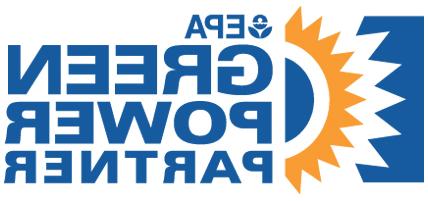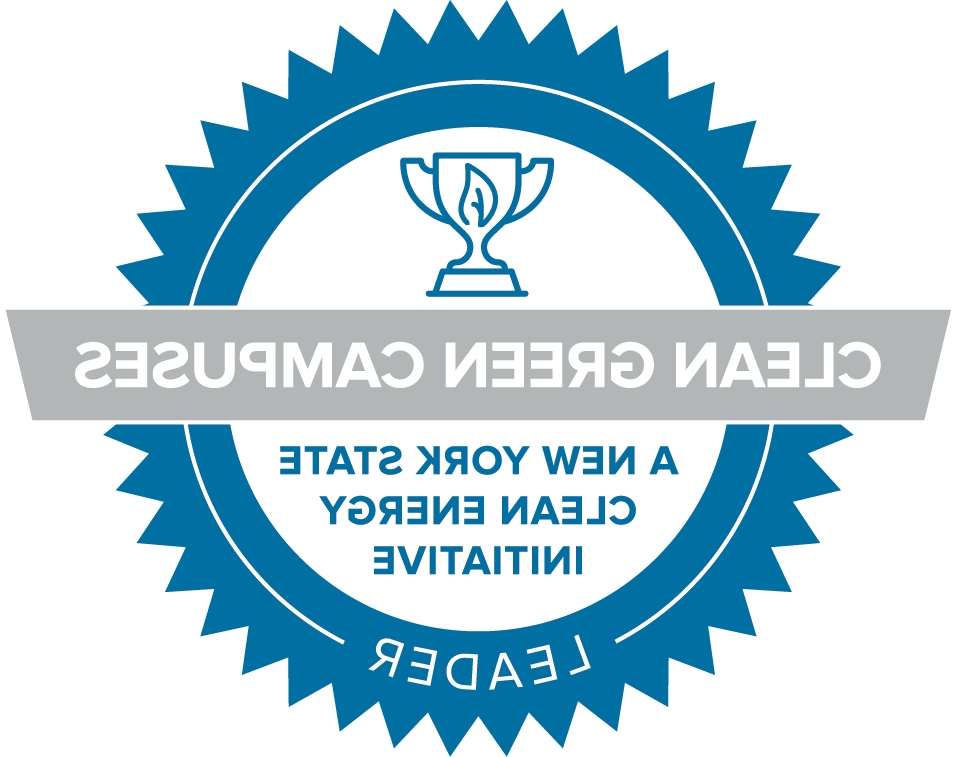Skidmore Compost
Skidmore Compost is a student-run composting program that services on-campus residences and academic spaces through the academic year. Since 2011, the program has diverted over 130,000 pounds of food waste from landfills while preventing harmful greenhouse gas emissions. The compost created by the program is utilized by the Skidmore Community Garden, where it is used to enrich soils and promote the growth of healthy, fresh, organic vegetables.
There are green buckets on the first floor kitchen of our resident halls and on the first floor of most academic buildings (see list below). The Dining Hall and Spa have compost totes for diners to scrape their plates. In the back of house, staff seperates kitchen scraps into compost bins. This food waste is collected by FoodScraps360, a local compost hauler, and composted at the Town of Bethlehem’s Commercial Composting Facility. These programs can take food waste (including animal products) and napkins. They cannot take compostable wares like plates, cups, and silverware.
| Building | Location | Building | Location | |||
| Tisch | 3rd Floor, History | Saisselin | Lobby | |||
| Palamountain | 4th Floor, VPAA | Library | Vending/Kitchen | |||
| CIS | Atrium | Ladd | 4th Floor, Political Science | |||
| CIS | ESS Hall | Starbuck | Lobby | |||
| North Hall |
|
AdvancementKitchen |
Sports Center | Lobby | ||
| Annex | Lobby |
|
Palamountain/Bolton |
2nd Floor, SE Lobby | ||
| The Surrey | Breakfast Room |
|
Palamountain/Bolton |
Gannett Lobby | ||
| Zankel | Lobby | |||||
| Filene | Lobby |
Students can also compost in their on campus apartments. This is composted by students in our "backyard compost" system. Apartment residents dump their kitchen bucket into bins near their apartment which student Compost Mangers collect weekly and compost on campus. This program can take plant based food scraps and egg shells (no animal products please)!
Please email compost@sipinglq.com with questions or concerns.
The student compost managers host Work Parties on Friday's through the school year. At these work parties, volunteers will help collect blue bins on our bike trailers, turn and aerate foodwaste with shovels, and return the blue bins. Volunteers should wear sturdy shoes that can get dirty, bring a water bottle, and dress in layers if it is cold outside. Gloves and tools are provided.
Please RSVP to compost@sipinglq.com if you are interested in lending attending a work party or if you want to volunteer in another capacity.
FOR APARTMENT RESIDENTS: Our "backyard style" bin collection system is suited for vegetable waste and eggshells.
We do indeed take avocado pits, pasta, coffee grounds, pumpkins and squash. We do
NOT accept meats, cheeses, bones, or biodegradable plastics, as these do not break
down in a timely way in our system.

FOR RESIDENCE HALLS, ACADEMIC BUILDINGS, AND DINING: The College partners with an industrial composter who can accept all food scraps (this includes animal products). This compost is hauled to Bethlehem, NY by FoodScraps360.
An estimated 1.3 billion tons of food is wasted globally each year, despite the fact that 690 million people are food insecure worldwide. Whether food is wasted because it wasn’t sold in stores or was left on one’s plate after dinner, these scraps are destined for landfills, where they will produce methane—a harmful gas to humans and the environment alike. These landfills do not exist in a vacuum, and are frequently located in low-income, BIPOC communities, disproportionately putting marginalized people at risk of the unpleasant and harmful effects of landfills. These communities experience higher levels of heavy traffic, dusty air filled with “noxious odors and toxic gases”, and noise pollution (NCEJN). Methane emissions also contribute to climate change, which disproportionately impacts marginalized communities through “ (a) increase in the exposure of the disadvantaged groups to the adverse effects of climate change; (b) increase in their susceptibility to damage caused by climate change; and (c) decrease in their ability to cope and recover from the damage suffered” (Islam and Winkel, 2017). The effects of climate change also put a much higher burden on developing nations over developed nations, despite the latter contributing to climate change at exponentially higher rates.
Aside from, or in tandem with, reducing food waste, the most effective solution to this issue is composting. By composting, we are taking wasted food and turning it into nutrient-rich soil that can then be used in farms and gardens, rather than sending it to landfills. By composting, the water, energy, land, labour, and capital resources that were used to make the food are not all lost, but rather repurposed. This not only helps the area where the soil ends up, it also provides a more sustainable solution to waste and lessens the burden on marginalized communities.
At Skidmore College, we make composting the easiest it will ever be. All you have to do is put your food waste in the bags we provide for you and take it to the blue bins outside of the laundry rooms—your compost managers take care of the rest. Before throwing your food scraps or unused produce in the garbage, remember the effects of your actions. In composting, we are fighting for racial justice.


2010–2011
The campus composting program started as a student capstone project. Students explored the economic and environmental costs and benefits of a comprehensive, institutional composting system. The project proposed that the the system would collect and compost food scraps, lawn-maintenance byproducts and horse manure from the Skidmore stables. The promising project was later adopted by students. Together, they wrote a proposal for a pilot program in the Northwoods Village Apartments. After receiving approval, the student leadership team and the Environmental Action Club (EAC) adopted the project and began collecting compost in the spring of 2011.
2011–2012
The first semester of the Skidmore Compost collection was successful, but students knew improvements could be made. Using feedback from apartment residents, student volunteers made several improvements to the compost program. Students gave residents new buckets, offered more educational opportunities about proper composting practices and made changes to make the program more efficient. Once again, students surveyed the Northwoods residents to analyze the effectiveness of the program.
2012–2013
The 2012–13 academic year brought many improvements to the Skidmore Compost Program. For the first time, Sustainable Skidmore hired two student compost managers. There was a significant increase in student volunteerism and general awareness of the Skidmore Compost Program with the new student leadership, allowing the program to expand its reach on campus and make improvements to the program. Students began collecting compost from apartments with bicycles and trailers, reducing our dependence on fossil-fueled vehicles. The group also partnered with Skidmore Dining Services and began collecting coffee grounds from the dining hall and all three campus cafés.
2013–2016
Skidmore Compost continues to expand. A new biodegradable bag program is being used within the Northwoods apartments, helping improve the cleanliness of the program for apartment residents. We are also moving beyond simply servicing the Northwoods Village. Now, Skidmore Compost offers educational events that teach students how to reduce the amount of waste they create. Although it is important to compost food waste, it is more important to find ways to minimize waste in general. Skidmore Compost has offered food preparation workshops that show how to properly cut vegetables so that edible parts are not wasted, and how to properly store foods so they last longer.
2016
After many years of planning, Skidmore Compost expanded its operation to a larger-scale composting program at a property about 1-mile from campus. The new larger-scale program composts horse manure from our stables, lands and ground debris, and coffee grounds from all of our on-campus dining locations. The compost created at this site is used on landscaped beds across campus to reduce our reliance on fossil fuel-based fertilizers. Students are trained to operate the tractor that we use manage the material that is delivered to the site and turn our windrows. Our on-campus compost program continues to manage food waste from our apartment villages.
2017
In 2017, Skidmore launched a pilot composting program in the Murray-Aikins Dining Hall to divert food scraps and surplus food (that cannot be donated to our local community) from entering the waste stream. After a successful pilot program, we implemented a permanent program in the summer of 2018. We are currently composting around 10,000 pounds of food scraps each month thanks to a partnership with Natural Upcycling. Given access to large scale composting, Environmental Action Club coordinated compost collection at Fun Day 2017, avoiding hundreds of pounds of landfill-bound waste.
2018
For years Dining Services has collected surplus food from the Muray-Aikins Dining Hall and donated it to the local soup kitchen and senior center. A student club, Feedmore, manages food collection and donation through the academic year. In 2018, they began weighing weekly food donations, and their inventory suggested that over 3,000 of pounds of surplus food were donated through the academic year alone.
2021
The student composting program secured funding for a new member of the team- an electric bike! This bike helps our team navigate the hills of Skidmore's campus with compost in tow.
In the Spring, EAC and the Sustainability Office partnered to pilot composting in Residence Halls, starting with Wiecking Hall alone. The program continued to expand to all other Residences, with one bucket in the 1st floor kitchen of each building.
Sadly our off-campus site was put on hold for the forseeable future with presently insurmountable challenges of imbalanced C:N ratio delaying timely breakdown, water access, and the crushed stone site substrate infiltrating the compost blend.
2022
Starting in 2022, the New York State Department of Environmental Conservation Food Donation and Food Scraps Recycling Law "requires businesses and institutions generating an annual average of two tons or more of food waste per week to: Donate excess edible food; and recycle all remaining food scraps if they are within 25 miles of an organics recycler." Skidmore began reporting this year and expanded collection to post-consumer food scraps in the Dining Hall as well.



